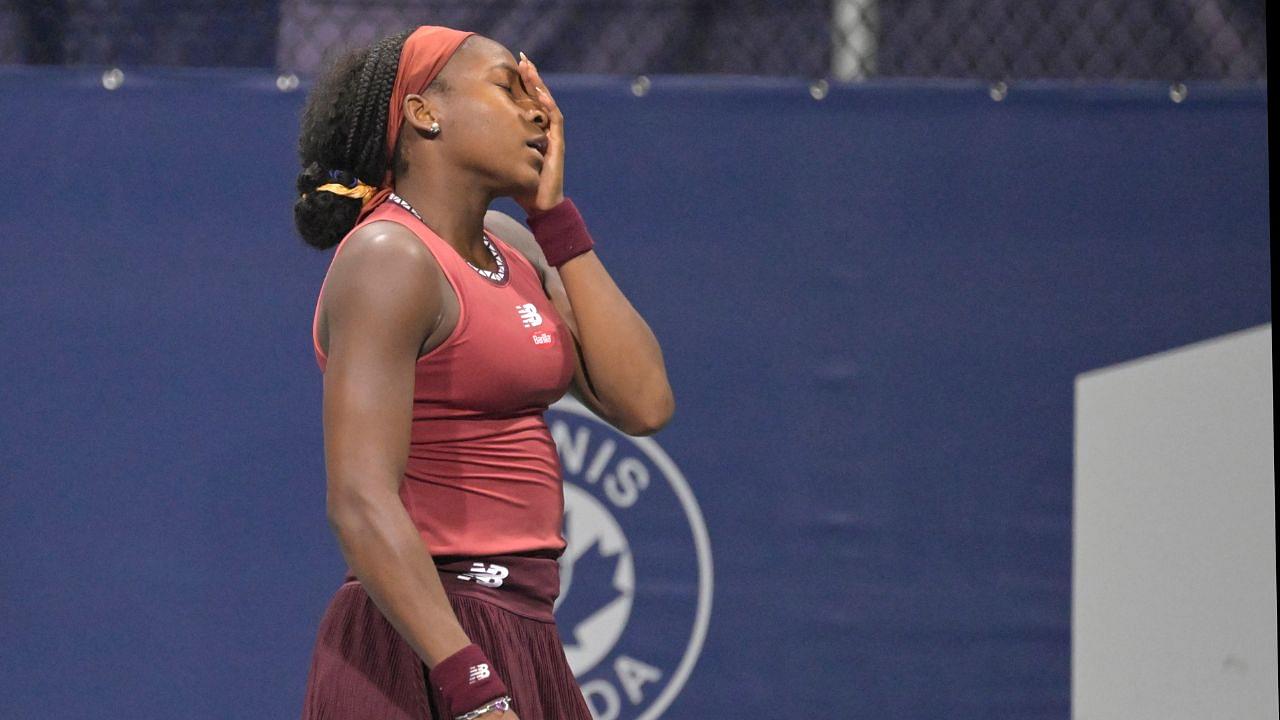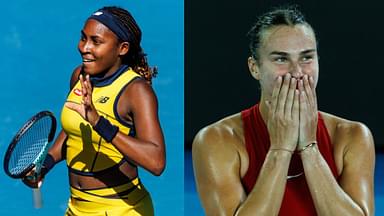Coco Gauff beat Aryna Sabalenka in a thrilling match to claim her maiden US Open title, coming from a set down to beat the world number 1 in front of a jubilant crowd to win the biggest title of her career so far. However, in the post match conference, Gauff mentioned that she was unhappy with the way she had to play against her powerful opponent.
Sabalenka, known for her aggressive playing style, had Gauff on ropes for the better part of the first set and the American took on an defensive approach to counter it. The Belarusian puts immense power in her shots and Gauff had to be on her toes to play well defensively. The American has to be applauded for showing the mental strength to come back from a set down in front of an expectant crowd.
Gauff unhappy with her style of play in the final
Coco Gauff got the better of Aryna Sabalenka in what was a rollercoaster final of the US Open. The American came back from one set down to win the match 2-6, 6-3, 6-2 and win her first ever Grand Slam title. The teenager has been in fine form coming into the tournament having won the Cincinnati Masters prior to the US Open. Winning the first Grand Slam title will be a relief, but the 19 year old was not happy with her performance.
Speaking to the media post match, Gauff was quick to show he displeasure with her performance and admitted that she was too defensive. The American said she was trying to stay in the game having suffered an onslaught from the world number 1 and that she did not like the way that she played.
“I was just trying to stay in the match. I knew she was going to go out there swinging, and I knew that I wasn’t going to be able to win this match the way I like to play. I don’t like to play the way that I played today. Running around the court, it’s fun, but, you know, it’s not as fun as hitting winners. I knew going into the match that was going to have to be the way I was going to have to play today against her.”
Gauff might be unhappy with her defensive performance but that was the only way to stop Sabalenka who was in full flow. The American had to stay in the game before eventually breaking the world number 1 to win the final. Gauff’s success in the final was down to her ability to adapt to the game and take her chances.
Coco Gauff talks tactics
Coco Gauff talked about the tactics she used in the US Open final. The American, known for her aggressive tennis, took a more restricted defensive role to counter Aryna Sabalenka’s offensive game. Gauff revealed that her team wanted her to attack with more depth in her shots but it was difficult due to Sabalenka’s positive intent.
“The first set I was hitting balls so short and I was, like, why are they going so short? My team was telling me to get depth, and I was, like, I’m trying. It was hard to redirect the ball where I wanted to go because she’s always on the front foot, always hitting so fast. So I was telling myself to aim for the baseline because I’ll probably miss short more so than long.”
Gauff’s partnership with renowned coach Brad Gilbert has played a significant role in her development as a tennis player. Since their collaboration, her game has seen notable improvements, and she’s become a more consistent contender on the circuit and now she has a Grand Slam to show for it.







